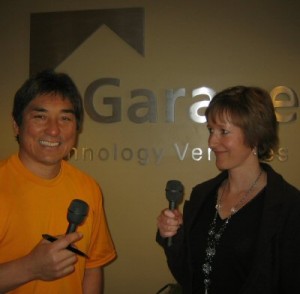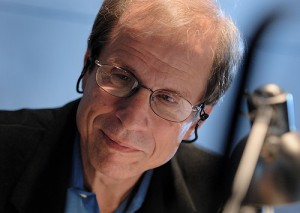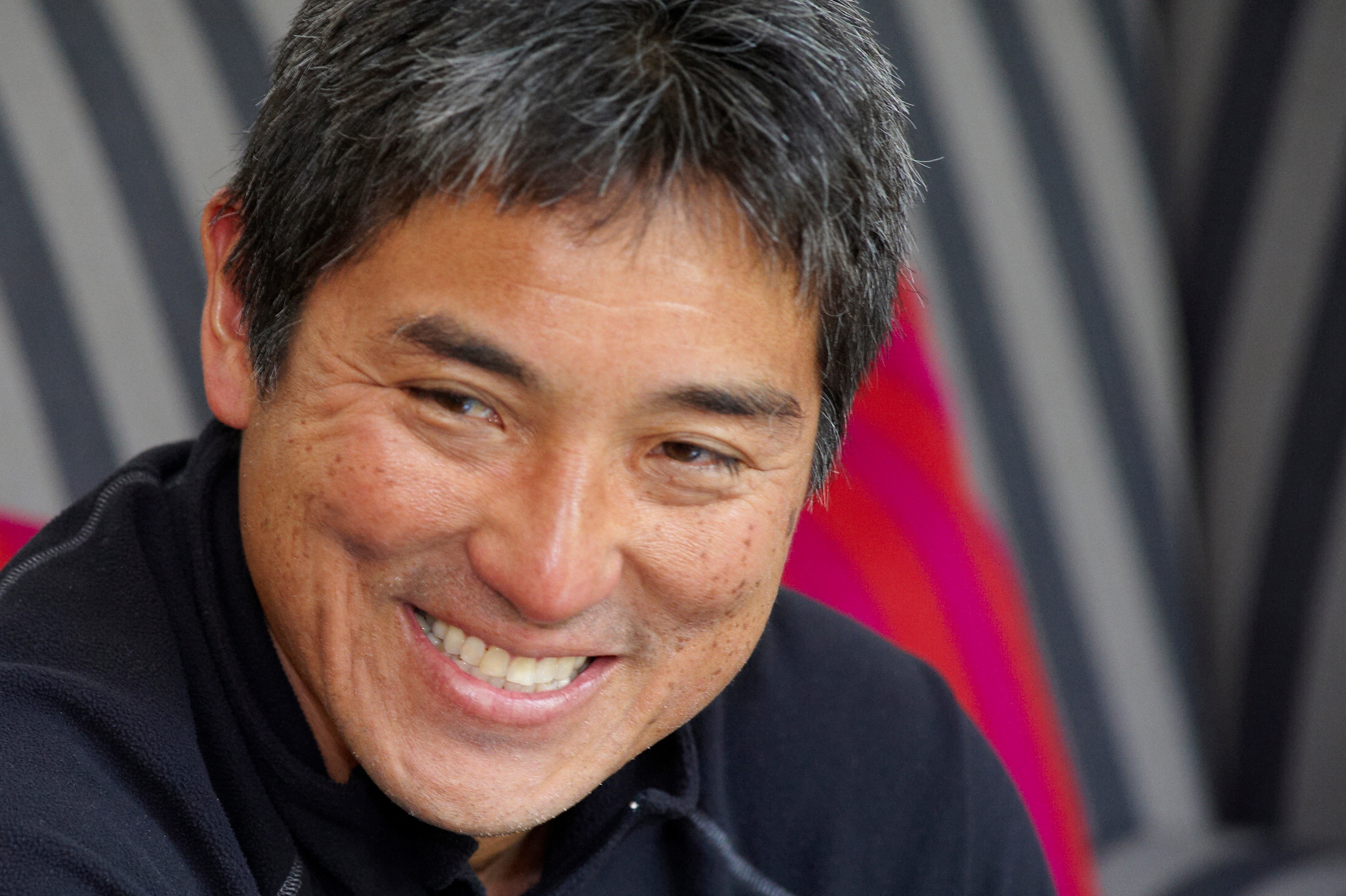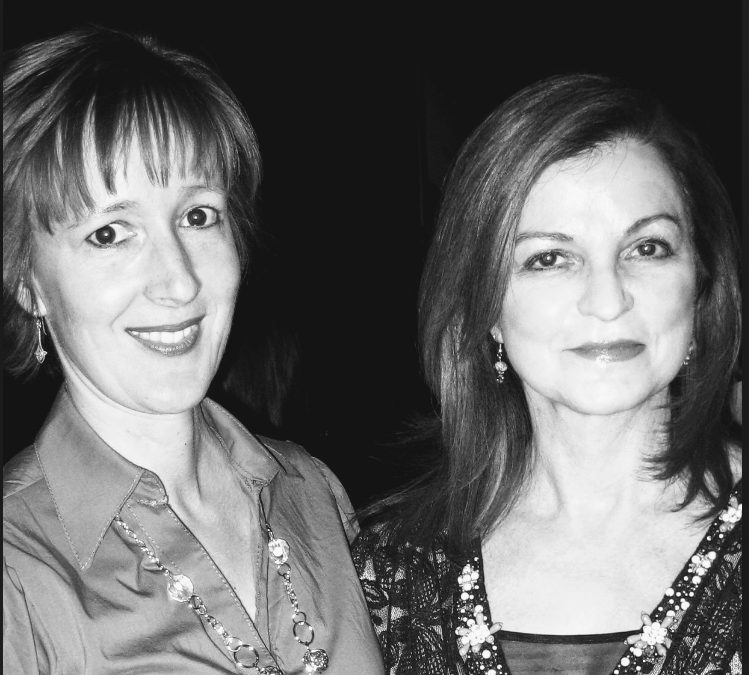
Apr 3, 2009 | Green World, Quotes
By Alison van Diggelen, host of Fresh Dialogues
Pulitzer Prize winning Maureen Dowd was a guest of Fresh Dialogues on Friday April 3rd, 2009. The interview was recorded at the Fairmont Hotel San Jose, April 2nd, 2009. Here are some select quotes from the transcript. Check back soon for the full transcript.
Are Maureen’s New York Times columns letters to her mother, Peggy?
“She is in my head in the sense that I want to amuse and inform the reader, and surprise them…tell them something they don’t know.”
On her Irish heritage
“They say that the Irish understand about politics and writing and I hope it’s true. I like to think so. I had a friend named Michael Kelly, the first journalist to die in the Iraq War…we had an editor who used to call us Gael Force.”
On America’s taste for all things big
“That’s who we are – we like big cars and McMansions, Costco…the question is, how big do we need to be to still feel American, while Obama tries to downsize us?”
On the failure of American car manufacturers to go green and embrace smaller, more efficient cars
“A French psychologist was hired by the American car manufacturers to justify why they didn’t go green earlier.. .why they kept making those huge SUVs, pickup trucks and Hummers long after they should have realized these brands was not really where we needed to go…. He asserted -a reptilian part of the brain seeks tools of survival, especially when the United States remains under threat of attack…You don’t want to go to war in a little Pinto. That’s where their head was.”
On GM’s Rick Wagoner and his firing by President Obama
“Reporters who cover Detroit were so relieved about Wagoner being fired. They’d watched the industry for years and years and years refuse to just embrace the future and make all these stupid decisions. And reward themselves.”
On Obama, his brain and his focus
“What’s depressing about the last decade is that America seems stupid and that’s what Obama is focusing on turning around. He himself is a real smarty pants. His favorite thing is to be in a room with a bunch of eggheads and he wants Americans to be smarter and kids to be better educated.”
On Dick Cheney’s role in derailing Vice President Nelson Rockefeller’s alternative energy plans in the 1970’s
“Rockefeller was a very moderate Republican and he developed an idea for an energy plan that would get us into alternative fuels. It was killed by (President Gerald) Ford’s chief of staff who was Dick Cheney. If Dick Cheney hadn’t done that then, our energy future would have been so much more advanced.”
On H.W. Bush’s attitude to environmentalists in the 80’s
“Bush called Al Gore ‘Ozone Man. ‘ That’s just how they treated environmentalists… as tree hugging, sandal wearing idiots.”
On Maureen calling Al Gore “practically lactating” due to his eco-sensitivity
“I was sympathetic to his ideas. I was just teasing him a little bit because he was so earnest. He could be a little righteous and self important; and it’s not always the most effective way to communicate your ideas, even if your ideas are right. ..He was sometimes a pompous messanger.”
On her green mentor and ‘office husband’, Tom Friedman, the NY Times columnist
“I try to get advice from Tom Friedman, who is Mr. Solar around our office. ..his whole house is solar designed. He’s trying to coach me in how to be more environmentally correct. ..When he gets depressed about the environment or the Middle East…he’ll come in and go, ‘let’s get a daiquiri!”
On Obama’s plans to embrace green tech and green energy
“Hillary and Obama in the primaries were both competing to come up with a plan for green jobs and for me, it’s very exciting because for the last 8 years it felt like we were going backwards in every way and that we weren’t coming into the 21st Century. We were like the Flintstones: not moving forward. So I love all that.”

Apr 3, 2009 | Green World, Technology, Transcripts
By Alison van Diggelen, host of Fresh Dialogues
My interview with Guy Kawasaki took place at Garage Technology Partners in Palo Alto, April 8, 2009. To read the summary or listen to the interview, click here
Alison: Guy Kawasaki is a Silicon Valley venture capitalist, cofounder of Alltop, columnist, author and sought after speaker, but is probably best known as Apple’s evangelist. He’s the one who helped launch the Macintosh computer in the 80’s. Guy – thank you for joining me today on Fresh Dialogues
Guy Kawasaki: Sure, sure. It’s a long time ago, the 80’s…
Alison: Yes indeed. So Guy, you have a very loyal following, some even call you a legend, a Silicon Valley legend in our time
Guy: (laughter) it’s a nice word for being over the hill.
Alison: How do you feel about that…that loyal following and being known as a legend?
Guy: Well, I would dispute that I am a legend first of all. I think Wozniak is a legend. I’m flattered, I would not turn it down…but I do not think I deserve it. How’s that?
Alison: Do you feel you need to do more?
Guy: Well…presuming that I’d want to be a legend: yes. But one could make the case that legends don’t have the upfront motivation and desire to be a legend and true legends are after the fact. If you’re listening to this podcast and you’re 18 or 19 year old MBA and you’re saying, ‘I want to be a legend, that’s my goal in life, I think you’re not going to make it. What you should do is create a great product or service…if you do that, maybe you’ll be a legend. The goal is not to be a legend, the goal is to change the world. I could make the case that there are many people who’ve changed the world who are not legends for example…
Alison: Do you feel YOU have changed the world?
Guy: In a small way because I was part of an organization that changed the world: the Mac division, but I would not hold myself out as someone who changed the world.
Alison: Let’s go back to your childhood. You grew up in Hawaii, your father I understand was a fireman, a real estate broker and a state senator.
Guy: In that order…
Alison: Did his constantly reinventing himself, did that rub off on you?
Guy: Well it’s always romantic to look back and say his father reinvented himself so that’s why he’s so flexible or he was abused (not me) and deprived as a child so that’s when he got his toughness and his entrepreneurial spirit or at 12 years old he had the most successful stand in Honolulu…the same thing happens in sports, ‘he was five years old and he was swinging a golf club or shooting baskets.’ But the problem I think with that kind of theory is that there are lots of kids shooting baskets at five right? So one of them becomes a Michael Jordan and everyone says, ‘Yeah – he was shooting baskets at five.’ Well there were ten thousand other kids shooting baskets who did not become Michael Jordan so if the theory is: if you’re shooting baskets at five, you’ll become Michael Jordan: it ain’t that simple.
I’ll tell you what my father did do: with total certainty he taught me not to take any shit from anybody. Without question.
Alison: Good lesson. And how did he teach that Guy?
Guy: As a senator he took on people. He took on unions, he took on the governor…the mayor…he took on people. And that I learned from him, for sure.
 Alison: And do you refuse to take shit today from anyone?
Alison: And do you refuse to take shit today from anyone?
Guy: I wouldn’t say anyone. There are a handful of people I do. But generally, I have a very low tolerance and I think it’s only since I turned fifty that I really blossomed in that sense. When I turned fifty I decided that most of my life is over and life is too short and I wasn’t going to take it anymore. So there are things I pass on, there are people I don’t deal with. I just don’t care. I am – particularly in my online presence on Twitter and stuff – there are instances where I should be more empathetic, I should be more explanatory…more ‘whatever’ and I’m not. They can love it or leave it basically.
Alison: And tell me, as a child Guy: what were your influences? What did you want to be when you were five years old?
Guy: I don’t remember. You know…I really think when people say ever since I was five I wanted to be a ‘whatever.’ I think that’s retroactively inventing your memories. I can’t even remember what I wanted to be at five…probably a football player, maybe superman, I dunno…one of the three stooges. I have no idea, I don’t remember.
Alison: But what about that entrepreneurial spirit. Where did it come from? Can you trace it back or did it start at Apple?
Guy: It probably started in the Mac division when I saw people starting software companies, creating these great products…getting the reward and the independence and all that. So…if you interview Richard Branson, ask him at age five, did you always want to own an airline and fly…I doubt it. Richard Branson told me the story of the way he decided to get in the airline business…he was stuck in the Virgin Islands and couldn’t get a flight so he chartered an airplane and went to the terminal and said, ‘this plane is going to go from here to wherever and there are X seats, so anybody who wants a seat, it’s X pounds or X dollars each and he filled the flight and he figured: I should be in the airline business.
That’s very different from saying at age five, he would go with his father to the airfield and he always wanted to be a pilot and at fifteen he was the youngest licensed pilot in England and at twenty he flew for the royal Air Force. that’s the romantic version right?
Alison: Right, I get it.
Guy: In fact, he was just pissed off cos he couldn’t get from one island to another in the Virgin Islands.
Alison: Has being pissed off encouraged you to take things on?
Guy: Not really. The better test for the entrepreneur is that you create something that you yourself want to use. Now, it can be in a situation that you’re pissed off, that you think there must be a better way, but I don’t think anger is necessarily the sole mother of entrepreneurship.
Alison: And going back to school days, you majored in psychology. Has that been a useful tool for you?
Guy: Well I suppose you could try to connect the dots: say he majored in psych and now he’s an evangelist, a sales guy a marketing guy and an entrepreneur and he’s very active on social media so let’s draw the dots. You could do that…but the truth is that psych was the easiest major I could find at Stanford.
Alison: Talking about Apple, what would you say is the difference between an evangelist and just a sales and marketing guy?
Guy: The difference between an evangelist and a sales and marketing guy is: an evangelist has the other person’s best interests at heart and a sales person has their own interests at heart. That’s a crucial difference and many sales people will take offence to that (laughter)…and some might even say that the best sales people ARE looking out for their customer, not just themselves, but I would make the case that if a sales person had that attitude, that person is in fact an evangelist. Perhaps has never heard the term.
Alison: And what was it about the Apple products, specifically the Macintosh, that made you feel…
Guy: Evangelistic?
Alison: Evangelistic…I’ve got to help people find this and change their lives…
Guy: Evangelism comes from the Greek words ‘to bring the good news.’ So you have to have a product or service that you believe is good news. I believe the Macintosh was good news…it made you more creative and productive. I probably could not evangelize Vista for example (laughter). It’s not clear to me it’s good news. Now there may be people who believe Vista is good news and they can be evangelists…
So, one of the things is: I think great evangelists are made, they are not born and so you are made an evangelist when you either create or come across something that you view as good news. So anybody can be an evangelist, it’s not a character personality; it’s not a certain gene that’s been activated. It’s not in your DNA.
Alison: And the word evangelist, it has a religious quality about it. Is that relevant in your case? Is religion part of your life?
Guy: Religion is definitely part of my life. But it is not WHY I became a Macintosh evangelist. But yes…the two are not really related.
Alison: Did you ever work closely with Steve Jobs?
Guy: Yes (laughter)
Alison: How was that?
Guy: It was a very interesting, valuable, and unusual experience…um…I owe a lot to him. Arguably, I owe everything to him because I really established my reputation in the Mac division. So, yeah, he is one of a kind.
Alison: And what specifically did you learn from him Guy?
Guy: Many things. I learned that good design is very valuable…I think I learned how far people can be pushed and how much better they can do if you do push them. There are things I learned in the Mac division, not from him. For example I learned that the best product doesn’t always win (laughter) unfortunately. I also learned how much people who believe in your product can help you – and that wasn’t from him either – that was from people who loved the Macintosh.
Alison: Great, and what about Steve Wozniak?
Guy: Steve Wozniak, I never worked directly with, I came in after him. I’ve come to know him, I think he’s the purest form of engineering that there is and I have great admiration for him but I can’t say I ever worked for him.
Alison: Right. And you recently reviewed one of his books, a book about him…
Guy:Yes, Gina Smith wrote a book with him called IWoz and I reviewed it and liked it very much.
Alison: Would you recommend it to entrepreneurs?
Guy: Absolutely. Particularly engineers, because I think it shows the purity of what great engineering is.
Alison: And talking of books, you have written nine books I understand. One of your favorite books – that you recommend on your website – is the Innovator’s Dilemma by Clayton Christensen. Why is it top of your list Guy?
Guy: It’s because so many companies fall victim to the innovator’s dilemma which is basically if you become successful then there is all this pressure and momentum for you to constantly fix that product, make it better, drive down the cost, and all that stuff. So you’re focused on that because your customers are asking for that, your sales force is asking for that…everybody is asking for that. But truly the innovator’s dilemma is for you to create a product that kills that product and that’s a very hard thing to do, because nobody is asking for it.
If you walk into an Apple store right now, no one is going to say: ‘create a product that will kill a Macintosh.’ Right? And if you ask the sales force, no one is going to say it. But if you don’t do it, somebody else will. And so no one was asking for a product to kill the Apple 2, but that’s what Macintosh did. And so, ironically, as you get more and more successful and you have more and more resources to do more and more things, you can’t…or it’s a very difficult mental leap to do it.
Alison: What specifically can green entrepreneurs learn from that book?
Guy: They can learn, if they’re competing with an existing large company, perhaps insights into how to defeat that large company. Because you always think: wouldn’t it be great to work for that large company? You have infinite money, infinite brand awareness, infinite production and you’d see, it’s not so easy. The grass is browner sometimes. I think that is interesting and it’s also interesting if a green entrepreneur achieves a modicum of success, that you should figure out that you’re going to have an innovator’s dilemma. If you create the ultimate solar panel, then you’re going to drive the cost down, make it more efficient…whatever. And somebody else is going to have a new technology and you’re going to say well we can’t switch to that, because no one is asking for that…
Alison: Right
Guy: Imagine all the people who are so dependent on the oil business…they’re the last people who’re going to switch. That’s the innovator’s dilemma.
Alison: Let’s talk about your books. One of your books sounds fascinating to me. It’s called Rules for Revolutionaries; and there’s been a lot said about the green revolution going on right now. You’ve said the greatest role in life is being a revolutionary and making the world a better place. In what ways is that true for you?
Guy: Well, I would like to amend that a little bit. I think in fact the greatest role in life is to be a father or mother. I think that is arguably more valuable. Most entrepreneurs won’t agree with that…
Alison: I agree…
Guy: The second most is to look back on your life and say, I brought a Macintosh to life, I brought Yahoo to life, I brought Cisco to life and I made people’s lives better. Better search, better personal computers, better data access…whatever it is. I don’t see how it can get better than that.
Alison: Let’s talk about your Rules for Revolutionaries. You’ve said that it’s not about 10% better, it’s about jumping the curve and changing the world, so talking about the green revolution, what specific advice would you give green revolutionaries about making the leap and defying common ways of thinking?
Guy: Well, the true test of an entrepreneur for innovation is not to do something 10% better. To use a historical example, if you were in the letter quality daisy wheel (printer) business, you could make a daisy wheel printer that has 10% more fonts, 10% more sizes, 10% faster, 10% cheaper, whatever. But truly, the revolution occurred on the next curve which is the laser printer curve. Now if you’re on the laser printer curve, you’re duking it out, trying to make it cheaper, faster, higher resolution… all that stuff. Then what’s the next curve in the printer business?
So, you could say that in the same way, in the green revolution, to use a facetious example: you could make a shower head that used 10% less water. Is that a revolution? I don’t….No.
Alison: Yeah… good point.
Guy: So, the true test the question is: are you jumping to a new curve, or making a slightly better shower head, are you making a slightly better hybrid, or diesel: that’s the test.
Now, don’t get me wrong: in some places like maybe solar panels, to do a solar panel maybe 10% better is so hard that that IS a curve jump, so it’s not just the 10%, it’s: how hard is what you’re doing? Does it change the game? Because perhaps, by making a solar panel that is 10% better and 10% cheaper, we can go from $100,000 solar panel installations to $10,000 solar panel installations. That is a big deal, right?
Alison: Right
Guy: So…it’s all about jumping curves.
Alison: OK, right. You talk specifically about death magnets. Can you describe specifically what challenges and pitfalls someone in the green revolution might face?
Guy: A death magnet, firstly, let me define, is something that, when you encounter it, you know it might kill you, you’ve been told it might kill you, you’ve been warned, etc etc. but you still do it. And it’s because of inertia, momentum, whatever it is.
Alison: can you give us an example?
Guy: In the green revolution?
Alison: In the green revolution if you can.
Guy: I’m not that versed in the green revolution, but let’s suppose it’s an accepted practice that in the solar panel business everybody uses national distributors, with wholesalers, retailers and installers. So you look at that and you say: I have to do it that way too. Then somebody else comes along and says, the problem with that is you don’t control the quality of the installation, you don’t control the people…so what I’m going to do, is something different. I’m going to control from the time you buy the solar panel to the time it’s done on your house. It’s going to be my …whatever. You could make the case that either one of these is going to be a death magnet, I don’t know…in this business, but to say that ‘you always have to use a three tier distribution channel’ might be a death magnet, or to believe that ‘you can control all three tiers and scale’ might be a death magnet.
Alison: Can you give a specific for an industry you know well, so that we can demonstrate this point to entrepreneurs listening? What was a death magnet for Apple?
Guy: When the iPhone came out, they did not let ANY developers write software. Their first response was it has to work as a Safari plug-in. That was a death magnet. The thinking was: we need to control the experience; we need to certify the apps were great and all that kind of stuff, and so we have to force them through using Safari. That was a death magnet. And as you see, when they went away from that – and now there’s tens of thousands of apps – it fundamentally changed the phone.
Using another saying of mine: Let a hundred flowers blossom.
And you know that made the iPhone just more successful? If the iPhone were not an open platform, where you could write software today, I don’t think it would be nearly as successful.
Alison: Mmm. I think that’s fair. And whose decision was it to open it up? Do you know?
Guy: This is one of those retroactive things you’ll never know the truth… maybe Steve Jobs closed it down and he got bludgeoned into opening it up or maybe he closed it down initially because he wanted to ensure the launch was successful and he always intended to open it up. I tend to think that that’s the story we’ll be told…I don’t know if it’s the truth…(laughter).
Alison: Guy Kawasaki, thank you for joining me today on Fresh Dialogues.
For more about Guy Kawasaki on Fresh Dialogues, click here

 By Alison van Diggelen, host of Fresh Dialogues
By Alison van Diggelen, host of Fresh Dialogues

 Guy’s green tip: he recently installed low-flow shower heads in his home and bought the Samsung front loading clothes
Guy’s green tip: he recently installed low-flow shower heads in his home and bought the Samsung front loading clothes 




